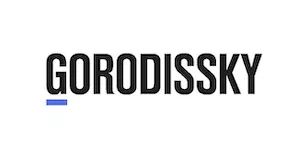- within Intellectual Property topic(s)
- within Privacy, Media, Telecoms, IT and Entertainment topic(s)
- with readers working within the Business & Consumer Services industries
Exploiting a patent without the owner's consent amounts to patent infringement as well as an administrative offense. Moreover, this action may also constitute a crime.
Unconsented use of others' patents in business can also amount to a violation of competition protection law and result in significant negative consequences for the infringer. The sanctions provided by the competition protection law are the subject of this paper.
Art. 14.5 of the Competition Protection Law prohibits unfair competition through the unlawful use of others' patent rights. This provision entitles any interested company to file an unfair competition complaint with the Russian Federal Antitrust Agency (hereinafter – the Agency) or its regional departments against any company unlawfully using others' patents.
The antitrust legislation establishes two sanctions for a violation of the Competition Protection Law:
- Income-based fine by which the defendant should transfer all income received from unfair competition to the federal budget (Art. 51 of the Competition Protection Law);
- Revenue-based fine by which the defendant should pay 0.01–0.15% of the revenue received from selling the product or rendering service on the market where the violation of the Competition Protection Law was committed (Art. 14.33 of the Russian Code of Administrative Offenses).
The mentioned fines are also applied for unconsented use of trademarks and copyrights. Therefore, the case law adopted by the court in unfair competition cases related to the illegal use of trademarks and copyrights is also applicable to unfair competition cases associated with the unlawful use of patents and vice versa.
The Russian case law clarifies when and under which circumstances the said sanctions can be imposed.
Competition
In comparison with a patent infringement lawsuit, a petitioner in an unfair competition case needs to prove one extra fact: that the parties to the case are competitors. It is worth noting that the recent case law provides a more flexible approach to examining the issue of whether the parties are competitors.
In the FERRERO case (А38-4009/2019), the court had to answer the question of whether relations between affiliated companies should be taken into account when deciding whether the petitioner and defendant were competitors. In that case, the defendant claimed that there was no competition because the claimant was a manufacturer and the defendant was an importer, which meant that they could not compete in the same market because they ran businesses in different areas.
ACCORDING TO THE COURT, IT WAS PERMISSIBLE TO CONSIDER ONE GROUP OF COMPANIES AS ONE BUSINESS ENTITY WHEN EXAMINING THE ISSUE OF COMPETITION.
Therefore, it is possible to refer to a group of companies when deciding whether the parties to the case are competitors. The adopted approach allows broadening the application of the Competition Protection Law to unlawful exploitation of patents on the market by taking into account not only the parties to the case but also their groups of companies.
The mentioned interpretation was sustained by the Supreme Court and included in its Resolution of the Plenum #2, dated March 3, 2021.
What fine should be imposed?
As was mentioned, the applicable law provides two sanctions for unlawful use of a patent in competition. At the same time, the law provides that only one fine can be imposed on the defendant. In the event that the income-based fine is imposed, the revenue-based fine shall not be applied (Art. 51 of the Competition Protection Law).
Moreover, according to the Anti-trust Agency practice, if it is possible to calculate the defendant's revenue from unfair competition, the revenuebased fine should be imposed rather than the income-based fine (the letter of the Agency N ИА/46433/16) of July 8, 2016). Therefore, the income-based fine can be applied only when it is not possible to calculate the defendant's revenue related to unfair completion.
How should the revenue be determined?
When calculating the amount of revenue, the Agency should take into consideration only revenue that the defendant has received from selling the infringing product, i.e., the product in which the patent was used without the patent owner's consent (the Resolution of the Supreme Commercial Court №11 of 17.02.2011 N 11). Therefore, the Agency should not take into account the revenue for selling all goods of a particular kind (for instance, all medicine of any kind put on the market by the defendant), irrespective of exploiting the patent in question.
In the Drastop case, the Agency calculated the revenue received from selling the infringing medicine in the amount of RUR 488,399,426.00 (about USD 5,600,000.00); the revenue-based fine was imposed in the amount of RUR 23,851,950.00 (about USD 270,000.00).
The defendant appealed the decision of the Agency to the Moscow Commercial Court (case №А40-127716/2021), acting as the trial court for reviewing decisions delivered by the Agency. The court noted that the medicine in question was manufactured in two versions; it was established that the patent was used only in the first version, while the second version of the medicine does not violate the patent rights.
THE AGENCY SHOULD FIND OUT WHAT PRODUCT THE PATENT WAS USED FOR, AS ONLY THIS PRODUCT CAN BE TAKEN INTO ACCOUNT TO CALCULATE THE REVENUE AND FINE FOR UNFAIR COMPETITION.
The Intellectual Property Court, which reviewed the case as the court of cassations, upheld the reasoning of the trial court.
The same approach was confirmed by the court in the Artogistan case (№А56-41146/2021), where the Agency calculated the revenue based on the value of all medicine put on the market, irrespective of whether the patent was used in all medicine or not. The court repeated once again in its decision that when calculating the turnover, the Agency should find out what product the patent was used for, as only this product can be taken into account to calculate the revenue and fine for unfair competition.
Who is liable for unfair competition?
The revenue-based fine can be imposed only on the company that first puts the infringing product on the market. Therefore, this sanction is not applicable to companies that will further resell the infringing product. This interpretation is provided in p. 17 of the Resolution of the Supreme Commercial Court №11 of 17.02.2011 N 11.
Unfair competition complaint and patent infringement lawsuit
Initiating an unfair competition investigation does not prevent the patent owner from filing a patent infringement lawsuit before, simultaneously, or after the investigation is completed.
However, it is necessary to take into account the statute of limitations established for an unfair competition investigation. According to art.41.1. of the Competition Protection Law, an unfair competition case cannot be initiated after three years since the act of unfair competition.
Moreover, the ongoing investigation should be terminated after the three-year term expires. It means that the Agency needs to complete its investigation and issue the decision within the three-year term. In case of continuing unfair competition (for instance, ongoing selling of the infringing medicine), the three-year term starts from the date when unfair competition is over or was revealed by the Agency.
In the Nilotinib case, the income-based file was imposed on the defendant in the amount of RUR 19,116,994.00. The decision of the Agency was sustained by the court. It is worth noting that the unfair competition case was initiated by a distributor of the patented medicine after the patent owner (Navartis A.G.) had won the patent infringement lawsuit (case №А41-85807/16). As was mentioned, the Competition Protection Law entitles any company suffering from unfair competition to bring an unfair competition complaint against a bad-faith competitor unlawfully exploiting others' patents in competition.
Why is it reasonable to file an unfair competition complaint?
The following advantages can be mentioned:
- When filing a patent infringement lawsuit, which is adjudicated
according to civil procedural rules, the plaintiff should collect
and secure evidence confirming the scope of the patent
infringement, which is the value and number of the infringing goods
put on the market.
The Russian procedural rules do not require the defendant to discover all documents and information related to the alleged patent infringement. Although the court is authorized to request upon the plaintiff's motion that the defendant submit related documents, the court is reluctant to do so because it may affect the adversarial principle and the principle of equality of parties in civil procedure, according to the court's reasoning.
Therefore, it may be difficult to collect evidence confirming the scope of the infringement, as most of the evidence is at the disposal of the defendant.
On the other hand, an unfair competition case is investigated by the Agency or its regional department, which is vested with broad powers regarding collecting evidence from companies and government bodies.
The patent owner who initiated the unfair competition case can use the said evidence in a patent infringement lawsuit, which can help to prove the scope of the patent infringement and calculate the compensation or damages. - All fines imposed in an unfair competition case should be
transferred to the federal budget. Therefore, the remedies provided
by the Competition Protection Law were not designed to compensate a
patent owner for damages caused by unfair competition.
However, negative consequences suffered by a defendant can deter them or other potential infringers from using others' intellectual property.
Therefore, patent owners can invoke sanctions provided by the Competition Protection Law as a supplementary option for enforcing their IP rights and fighting infringers unlawfully exploiting others' intellectual property in their business.
The content of this article is intended to provide a general guide to the subject matter. Specialist advice should be sought about your specific circumstances.


